Life with pets can be unpredictable, and while our Alpine Animal Hospital team is available for all your pet’s unexpected emergencies, injuries, and illnesses, we prefer to see your pet for routine wellness care. And we know you prefer that, too.
So, while we cannot control the future, we can provide nine simple strategies to help you prevent or minimize pet emergencies.
#1: Recognize a pet emergency, and act quickly for an improved outcome
If your pet is bitten by a snake or hit by a car, you clearly recognize they need immediate veterinary care. However, if their illness or injury signs are subtle, you may inadvertently delay your pet’s emergency care, which can result in them needing more extensive treatment, having a poor prognosis, or losing their life.
The most common pet emergency signs include:
- Pale or discolored gums (e.g., white, grey, blue, pale pink, brick red)
- Trouble breathing (e.g., rapid breathing, gasping)
- Rapid or weak pulse
- Loss of consciousness
- Excessive bleeding
- Distended abdomen
- Straining to urinate or inability to urinate
- Collapse or uncoordinated movements
- Paralysis (e.g., limb dragging)
- Facial swelling
- Inability to stand
- Seizures
- Obvious broken limb
- Blood in eyes, ears, urine, or stool
If your pet is experiencing emergency signs, or you are unsure about their health status, immediately call Alpine Animal Hospital for assistance.
#2: Keep your dog leashed or safely restrained
When outdoors, always supervise your dog to prevent their escape, which can result in them being hit by a car, fighting with other dogs and wildlife, or ingesting poisons. Keep your dog leashed and prevent them from interacting with unfamiliar dogs, or chasing or provoking wildlife. Ensure your yard is securely fenced, closing any gaps. Remember to always confine your dog to a crate or seat belt when riding in a vehicle.
#3: Keep cats indoors
The great outdoors poses many threats to your cat’s health and safety. Keeping your cat indoors significantly reduces their risk of being hit by a car, contracting an infectious disease, becoming the prey of local wildlife, and becoming an animal abuse victim.
Indoor cats generally live longer and healthier lives than cats who live outdoors, but they need mental enrichment to stave off boredom. To safely satisfy your cat’s stalking instinct, offer them engaging indoor alternatives.
#4: Protect your pet in the heat
You may recognize that hot weather is dangerous for your pets, but do you know that heat-related injury can occur in temperatures as cool as 70 degrees? During a heatstroke emergency, your pet’s body temperature exceeds their temperature-regulating ability, which can cause internal organ damage and death.
During warm weather, protect your pet’s health by taking these precautions:
- Restrict flat-faced (i.e., brachycephalic) dogs’ outdoor time, because their small muzzle and narrow airway increases their heatstroke risk.
- Always provide shade and fresh water.
- Routinely assess their comfort.
- Take frequent breaks.
- Limit physical activity.
- Exercise when the day’s temperatures are cooler (i.e., in the morning or evening).
- Never leave your pet unattended in a parked vehicle, where interior temperatures can rise to dangerous levels in as little as 5 to 10 minutes.
If your pet shows heatstroke signs (e.g., excessive panting, drooling, vomiting, lethargy, incoordination, collapse, seizures), move your pet to a cool area, and call Alpine Animal Hospital.
#5: Check your home for pet toxins
Many everyday items can pose significant health hazards for pets. Inspect your home, garage, and all of your pet’s favorite places—indoors and outdoors—for potentially deadly items, including:
- Foods — Chocolate, xylitol, onions, garlic, raisins, macadamia nuts, and more
- Plants — Indoor and outdoor plants—especially lilies, which are deadly for cats.
- Prescription and over-the-counter medications — Human medication tops the ASPCA’s Top 10 Pet Toxins of 2021
- Antifreeze — Store out of pets’ reach, and clean up spills—as little as a tablespoon can be deadly to your pet
- Rodenticide — Rat and mouse poison
#6: Recognize canine bloat warning signs
Dogs can develop gastric dilation volvulus (i.e., GDV or bloat)—a life-threatening condition in which the stomach fills with gas and twists on its axis, cutting off circulation, and often entrapping the spleen. Large-breed, deep-chested dogs have a higher risk of developing GDV, but all dog breeds are susceptible.
When GDV occurs, every second counts, and emergency surgery is required. Seek immediate veterinary attention for signs such as:
- Dry heaving or unproductive vomiting
- Labored breathing
- Discolored gums
- Distended abdomen
- Lethargy
- Collapse
#7: Monitor your cat’s urinary health
Urethral obstruction is an emergency condition in cats, with middle-aged, overweight, and male cats at increased risk. When a small bladder stone or mucus plug blocks your cat’s urethra, they are unable to urinate, and can experience toxin buildup and bladder rupture. Your cat will require emergency surgery to remove the blockage and restore urinary flow.
If your cat shows GDV signs (i.e, straining to urinate, producing little to no urine, vocalizing during urination), schedule an appointment with our Alpine Animal Hospital team. Early treatment can reduce your cat’s urinary blockage risk.
#8: Protect your pet’s spinal health

Intervertebral disc disease (IVDD) can cause temporary or permanent paralysis. Long-backed dogs and small dogs have a higher IVDD risk, although any breed can develop this spinal condition.
Follow these tips to minimize your pet’s spinal trauma risk:
- Lift small dogs on and off high furniture, or provide ramps.
- Ensure your dog maintains a healthy weight.
- Avoid concussive activity, such as repeated jumping and sudden turns.
- Keep your dog’s spine level when lifting them.
#9 Maintain your pet’s preventive care
One of the best ways you can protect your pet from needing emergency care is by maintaining their routine wellness care. Our Alpine Animal Hospital team is always available to provide your pet’s routine annual and semiannual examinations, screening tests, and blood work, which helps us detect injury, illness, and disease before your pet’s condition becomes urgent.
Follow our safety tips to prevent your pet’s need for emergency care. However, if they are clearly in distress, contact Alpine Animal Hospital immediately, and—together—we can minimize your pet’s emergency.


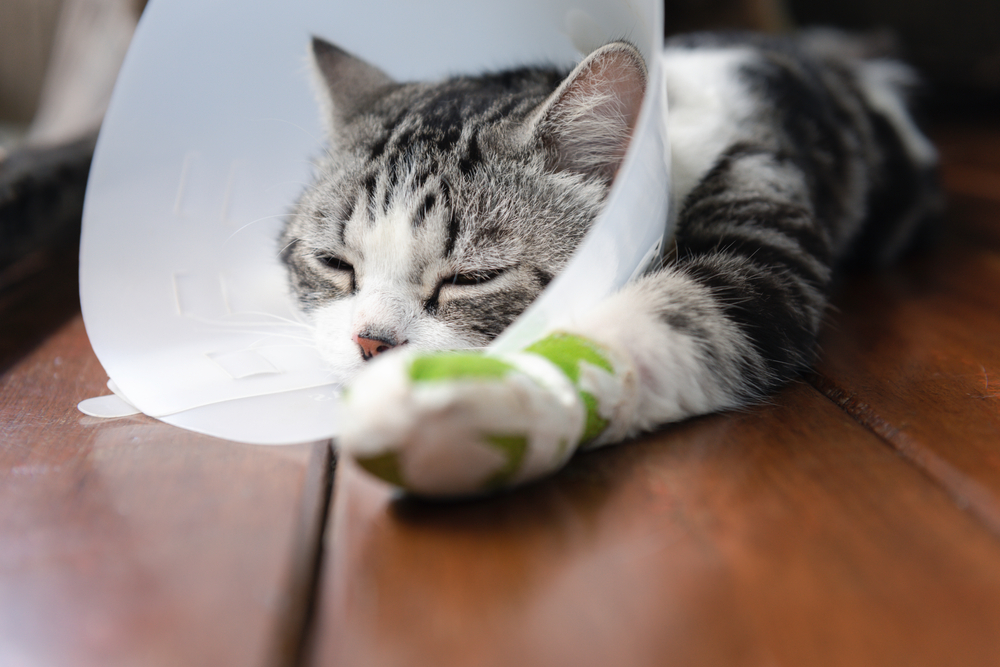
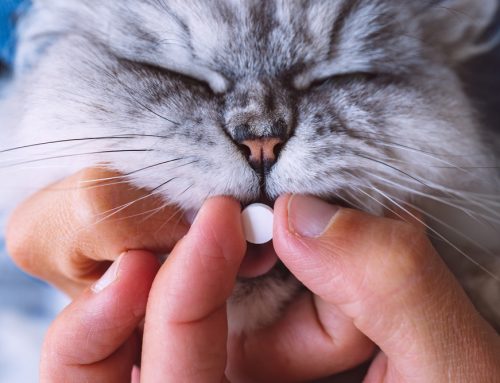
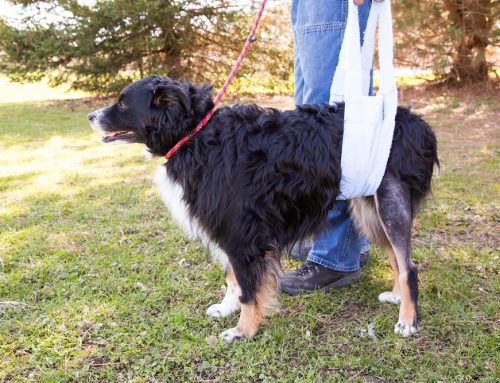
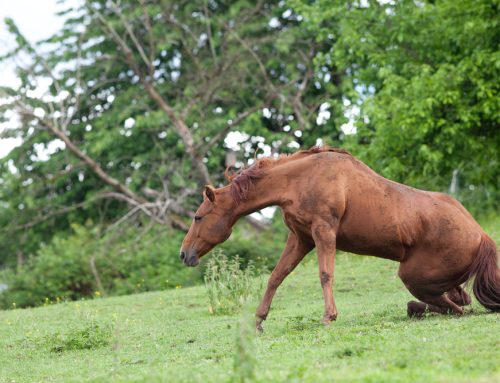
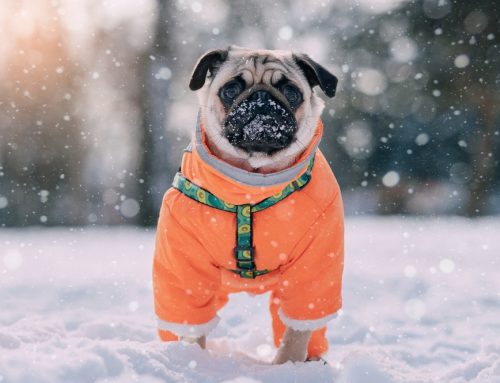
Leave A Comment